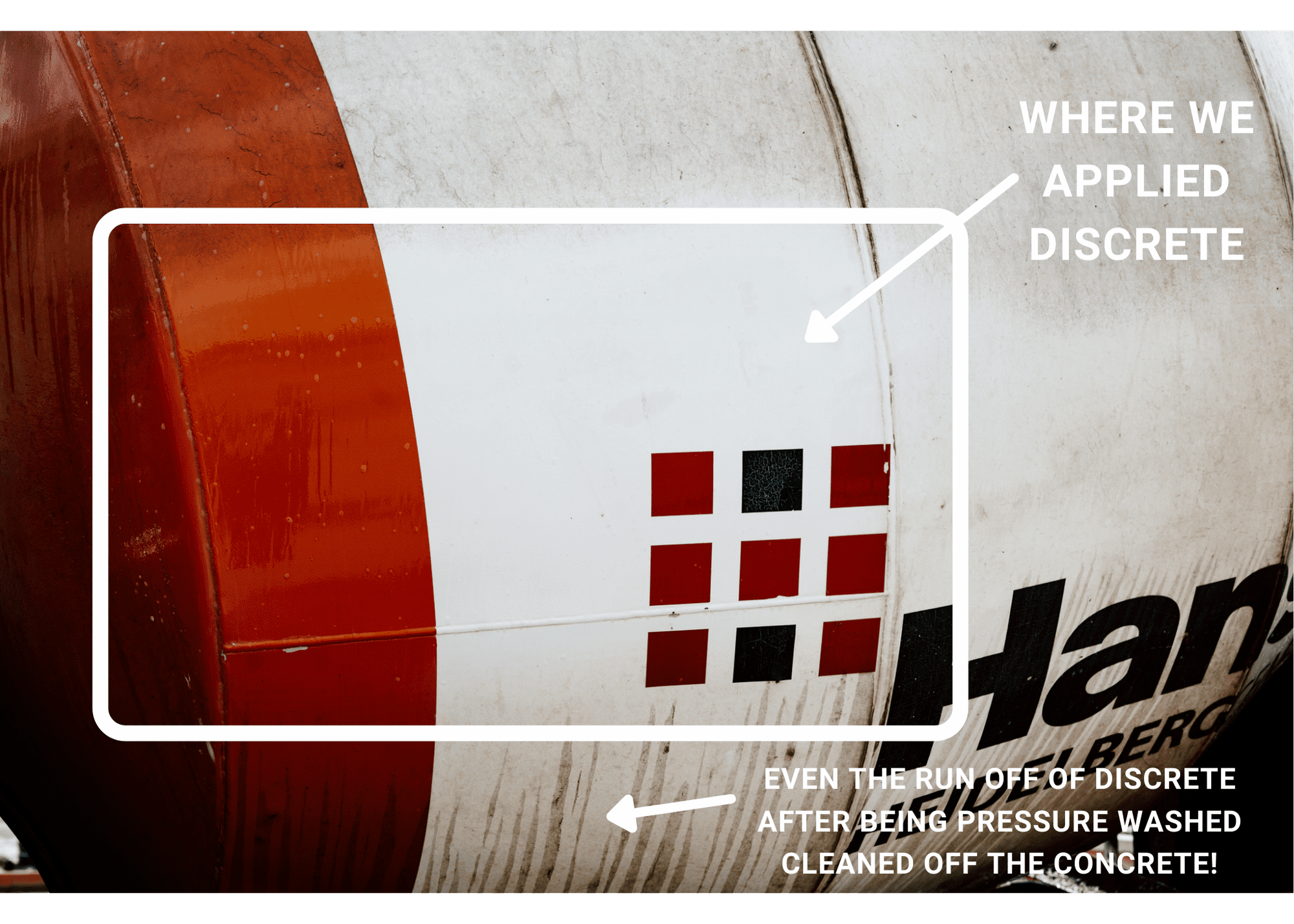Shop Menu
🚀 5% OFF Your First Order. Use Code FIRSTORDER5 🚀
What else does Discrete remove, besides concrete?
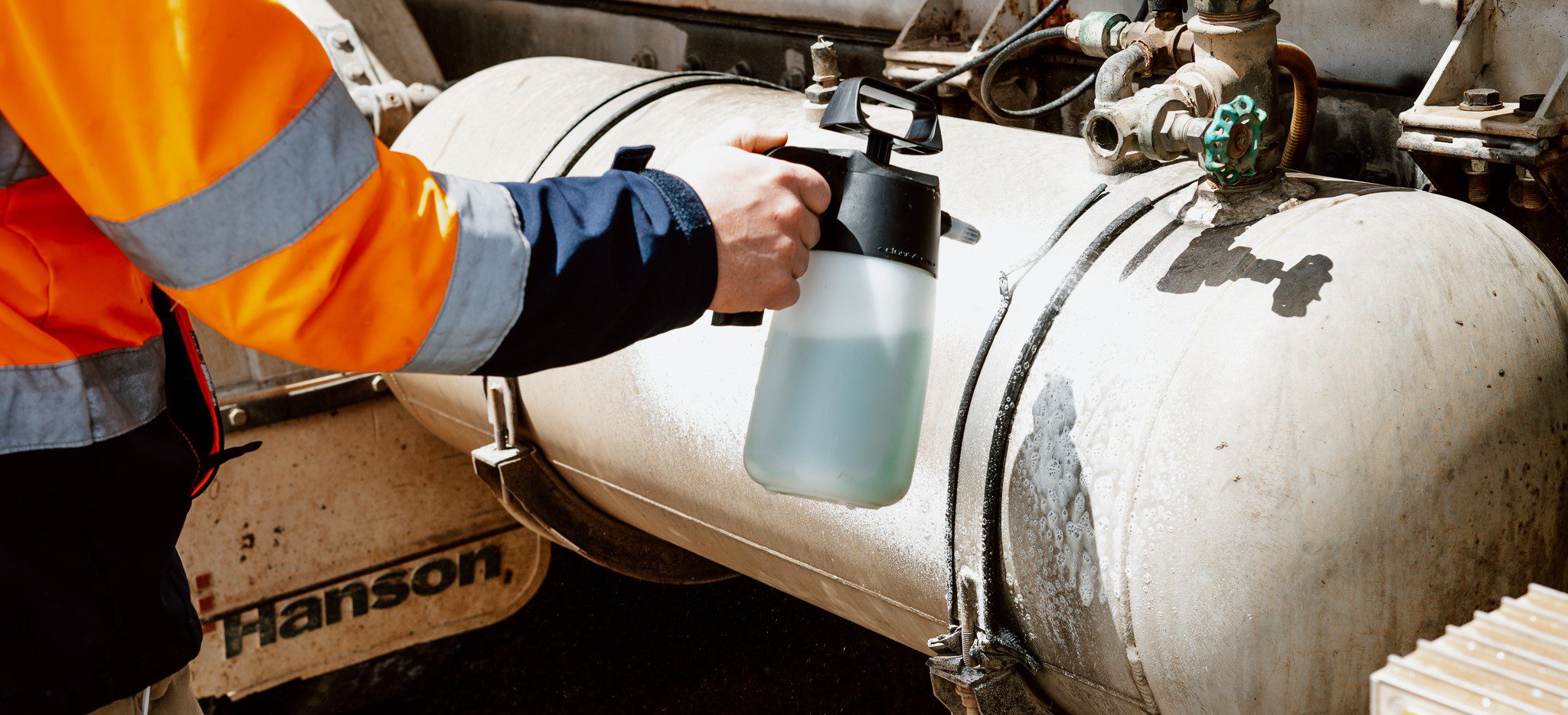
That’s the million-dollar question we get asked a lot. The answer? We call Discrete the Mineral Manic because anything from the earth that is a mineral, Discrete can remove!
Discrete isn’t just a concrete residue remover, it can remove limescale buildup on vehicles, calcium in grout and on tiles, red ore stains on vehicles and buildings (gotta love those dust storms), coal residue and many other minerals that are very difficult to get off with other cleaning products.
Fun Fact!
Discrete is a powerful substitute to weed killer! There are some weeds out there that just refuse to die, Discrete puts on its terminator glasses and gets the job done with no hassles.
So what won’t Discrete remove?
Because Discrete doesn’t have any acid in its formula, it is safe to use on rubber products. Although it does have a wetting agent, which makes rubber seals very slippery in spray bottles. We recommend using the IK Spraying Unit range that has Viton seals. Click here to see our range.
Another product that Discrete won’t remove is paint or Duco, this makes it safe to use on vehicles and other painted surfaces. Discrete also can’t remove oil, grease, rust stains and gum leaf stains (we have tried and tested it on nearly everything!).
What we don’t recommend using Discrete for
Discrete has a low pH and corrosion will occur on metals submerged in Discrete for extended periods, we recommend washing it off after 10-30 minutes after applying it. We don’t recommend drinking it or giving it to your neighbour’s howling cat!
Check out the below photo gallery of Discrete working its magic.
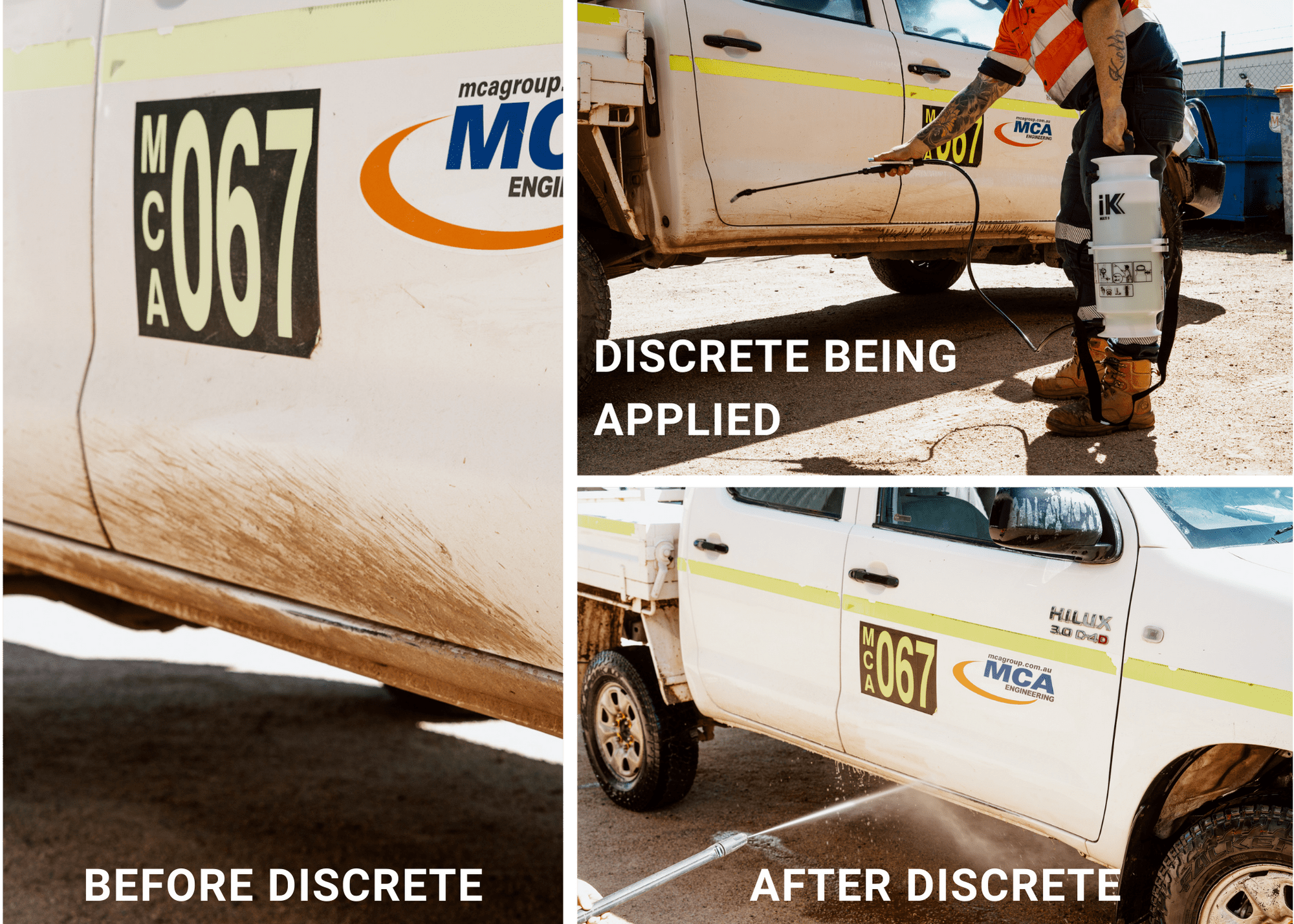
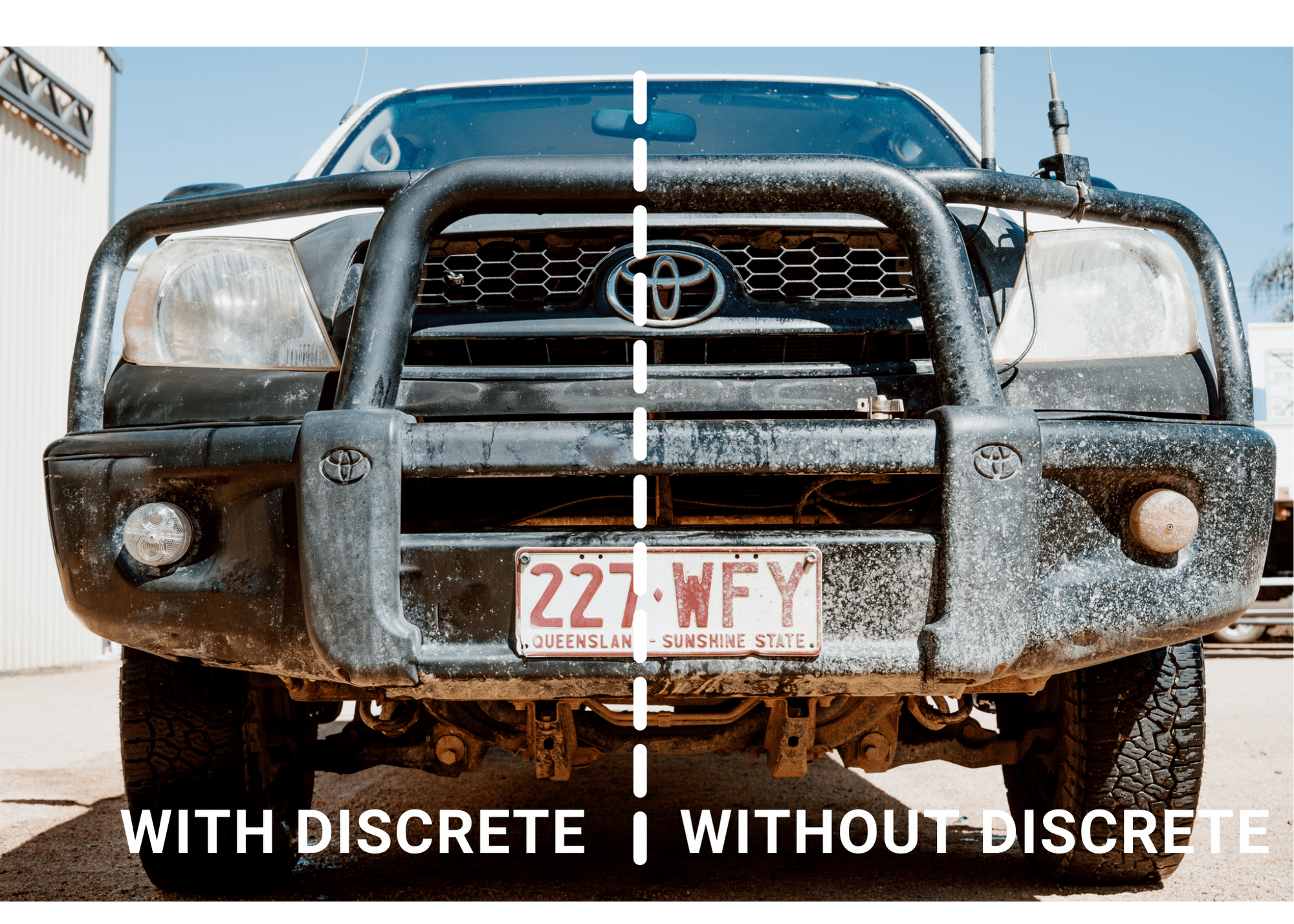
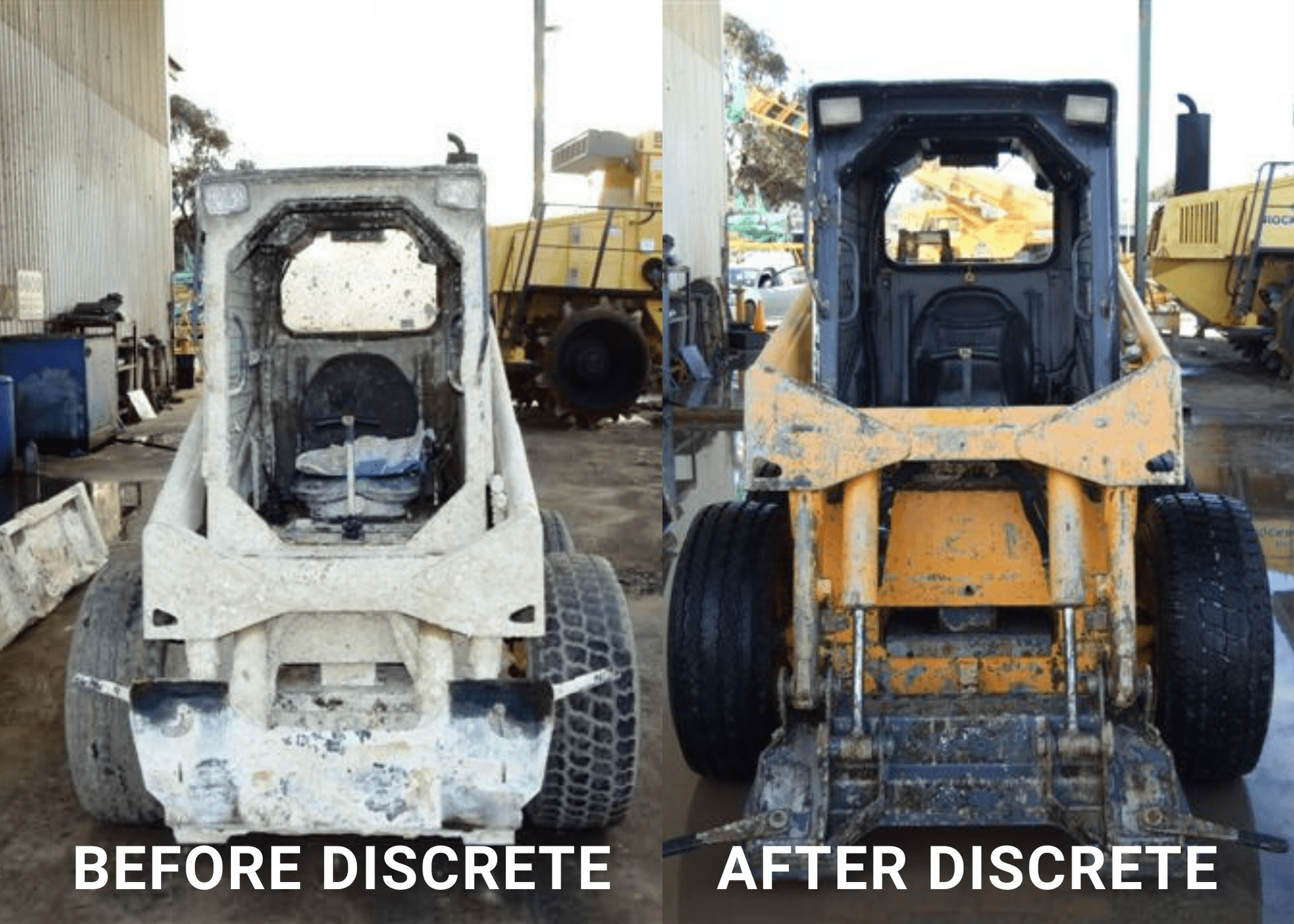
FAQs
What is the chemical makeup of concrete remover? A low-pH organic salt blended with biodegradable wetting agents. Discrete is based on acid-replacement technology and although low in pH does not contain traditional acids such as Hydrofluoric, Hydrochloric, Sulfuric, Nitric, Citric, Sulphamic, Oxalic and Glycolic.
How does concrete remover work? This proprietary formulation uses newly researched acid-replacement technology where the organic salt, being low in pH, acts like an acid in the cleaning process but has none of the characteristics associated with acid cleaners. This provides the user with all the cement residue removal power they need without the associated dangers of using an acid such as acid burns, fuming and dangerous goods transportation and storage.
Will concrete remover cause corrosion? Discrete displays a dramatically improved corrosive profile to traditional acid cleaners with respect to both ferrous and non-ferrous metals. When used as directed, negligible corrosion occurs and even when used undiluted the level of corrosion to ferrous metals is almost undetectable. However, it should be remembered that Discrete has a low pH and corrosion will occur on metals submerged in Discrete for extended periods.
What should I keep away from concrete remover? The way Discrete works is to undo a natural bonding process. This is why it destroys the bonding of concrete so well. However, galvanised steel forms similarly and therefore can be affected by Discrete. Luckily, it is very rare that anything on your Agitator truck will be made of galvanised steel. Just don’t get overspray on the skip bin beside you!
What is the recommended Discrete-to-water ratio? The recommended ratio of Discrete to water is 1:4-9 parts. (You can use more concentration if there is a build-up of concrete on your truck).
